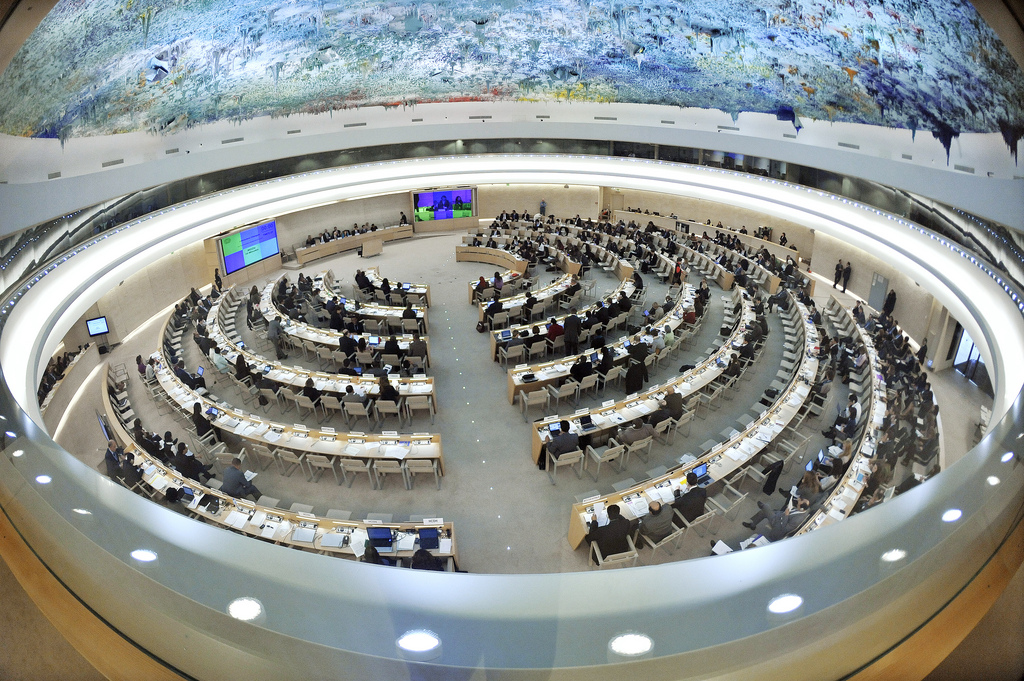
Announcing AMUN’s 2017 Simulations Line-up

Two weeks ago, we told you about some changes to AMUN’s simulations in 2017. Today, we are happy to share the final list of simulations for the 2017 American Model United Nations Conference. The full list is below.
General Assembly
- General Assembly Plenary
- General Assembly First Committee
- General Assembly Second Committee
- General Assembly Third Committee
- World Summit on the Information Society +10 (WSIS+10)
Regional, specialized, and technical bodies
- Special Commission: Conference of the States Parties of the Organisation for the Prohibition of Chemical Weapons (OPCW)
- Council of the Food and Agriculture Organization of the United Nations (FAO)
- Economic and Social Commission for Asia and the Pacific (ESCAP)
- Committee of Experts on Public Administration (CEPA)
Security Council
- Security Council
- Historical Security Council of 1956
- Historical Security Council of 1994
- Commission of Inquiry
Simulations
- International Court of Justice
- International Press Delegation
Still scratching your head?
Here is the background on some of the bodies we are simulating in 2017.
The high-level meeting of the General Assembly on the overall review of the implementation of the outcomes of the World Summit on the Information Society (WSIS+10) will be our major United Nations Summit, replacing the General Assembly Fourth Committee in 2017. WSIS is a United Nations effort to create a more inclusive and development-oriented information society in which all people can create and share information freely. WSIS+10 was held in 2014 and reviewed global progress toward the original WSIS agenda. The summit addressed many timely contemporary topics, including the digital divide, information communication technology for development, human rights in the digital age and internet governance. All delegations will be expected to seat representatives on WSIS+10; the body will write resolutions and will follow the same procedures as other General Assembly bodies.
In 2017 Special Commission will be the Conference of the States Parties of the Organisation for the Prohibition of Chemical Weapons (OPCW), which oversees the implementation of the Chemical Weapons Convention. It is also the primary organ of the Organisation for the Prohibition of Chemical Weapons. As always, placing representatives on the Special Commission is voluntary.
In place of of ECOSOC, AMUN 2017 will feature the Council of the Food and Agriculture Organization of the United Nations (FAO). It is the executive organ of the FAO, providing policy direction to the Organization on global food and agricultural issues.
For the first time in 2017, AMUN will simulate two bodies made up of non-governmental representatives. We are making this change to reflect the changing reality of the United Nations, where civil society and private sector stakeholders are increasingly important. Private citizens have played a role at the United Nations for decades, but there are a growing number of formal opportunities for them at the United Nations.
The first of these is Committee of Experts on Public Administration (CEPA), which replaces the functional ECOSOC commission in 2017. CEPA is a panel of 24 experts who meet annually to advise ECOSOC on effective public administration and governance. It has also reported to ECOSOC on human capital development, participatory governance and innovations in governance. At AMUN, these experts will maintain their country affiliations, but they are expected to represent the views of society at large—not just their governments.
The second is the new Commission of Inquiry (COI), which will lead investigations on two crises from 1948: the India-Pakistan dispute, and the conflict in Indonesia. This 10-member group of experts will develop two reports. Like CEPA, these experts serve in their personal capacity. Some countries will be assigned to the body and selected during the 2017 Country Lottery; we will accept individual applications for the remaining seats.
This year, the International Court of Justice will hear three cases: Liechtenstein v. Germany, the Advisory Opinion: Legality of the Threat or Use of Nuclear Weapons (1995), and Maritime Delimitation in the Indian Ocean (Somalia v. Kenya).
Are you excited to pick your country for 2017? Make sure to read Shannon’s advice on the 2017 AMUN Country Lottery. During Conference this year, we will also hold a special session for Faculty Advisors and Permanent Representatives to discuss these simulations in particular and AMUN’s approach to content and United Nations education more broadly. We hope to see you there!
Keep Up With The Accords
More to read
The AMUN Accords is a premier resource for fact-based Model United Nations simulations. We are always looking for new contributors. Want to write for the AMUN Accords? Check out out the submission guidelines and then get in touch!




